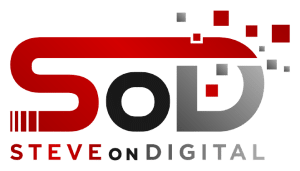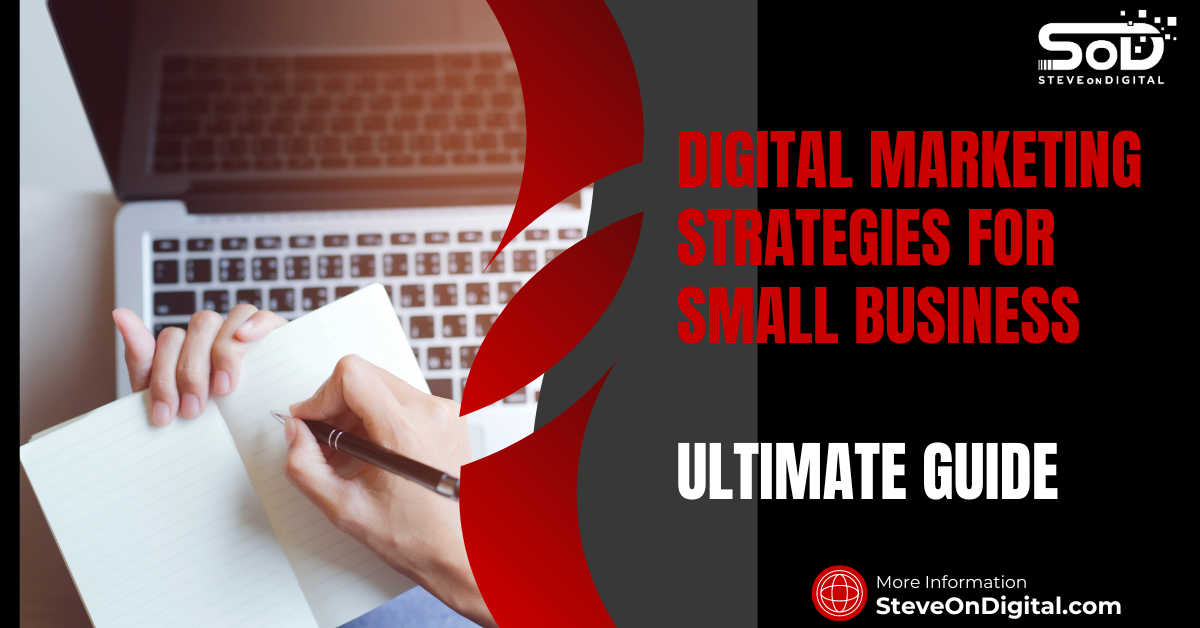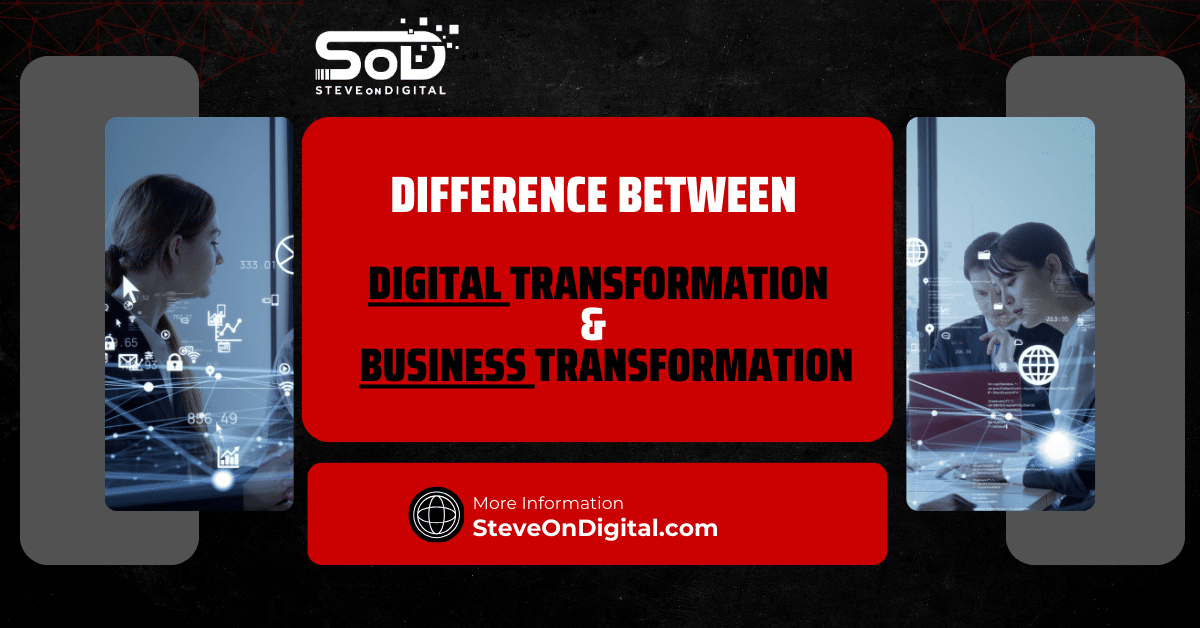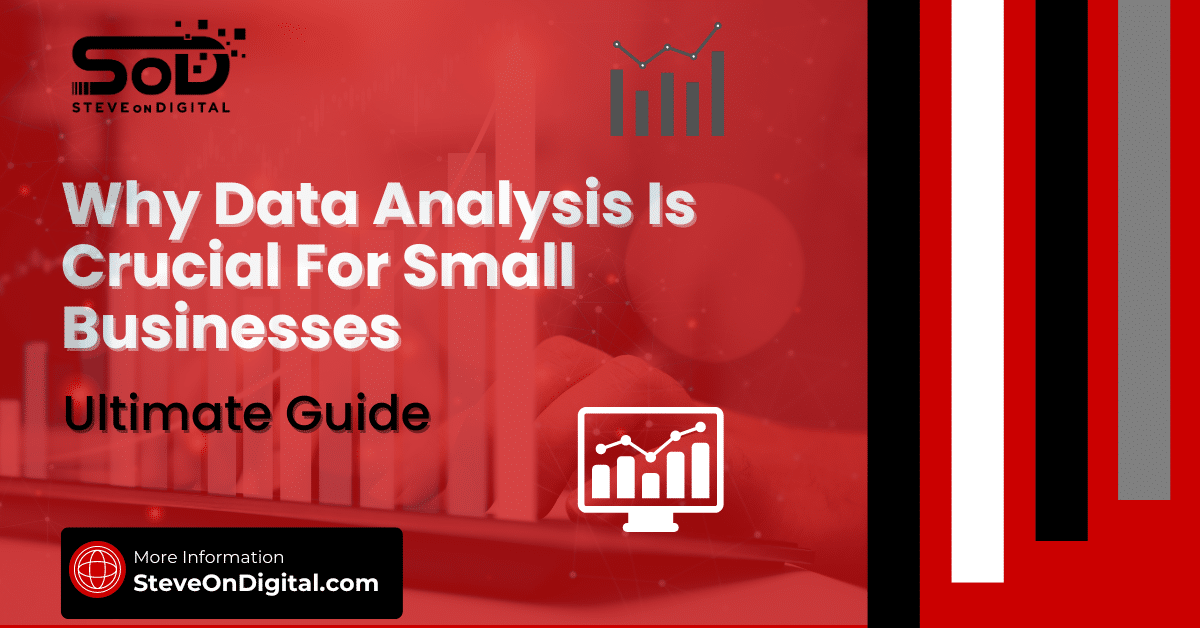Digital marketing encompasses all marketing efforts that use an electronic device or the internet.
Businesses use the internet, like search engines, social media, email, and other websites, to talk to people who might buy their stuff, and to keep in touch with the ones who already do.
For small businesses, it’s not just an option; it’s an essential way to reach your audience, execute marketing strategies effectively, and foster growth.
Digital marketing has evolved from traditional methods to a complex ecosystem that enhances how businesses engage with their customer base.
For me, Steve Johnston, diving into digital marketing was a transformation from traditional marketing methods to embracing technological advancements that empower small businesses to compete on a global scale.
Importance Of Digital Marketing For Small Businesses
Digital marketing offers small businesses a platform to compete with bigger competitors and reach a wider audience without needing a hefty budget.
Benefits include increased visibility, higher website traffic, and improved conversion rates.
From my experience, using digital marketing strategies effectively has led to noticeable improvements in sales and customer engagement without the overhead costs associated with traditional marketing.
Crafting A Robust Digital Marketing Strategy
Setting Foundations: Goals And Target Audience
Identifying your target audience is the first step to creating an effective digital marketing strategy.
Knowing what people like, how they act, and what bothers them helps you make your marketing fit exactly what they want.
As a small business owner, I’ve found that setting SMART goals—Specific, Measurable, Achievable, Relevant, and Time-bound—provides a clear roadmap and measurable targets for our digital marketing efforts.
Developing Your Digital Marketing Plan
A successful digital marketing plan integrates various strategies to ensure a comprehensive approach to reaching your target audience.
This includes using a mix of social media marketing, content marketing, SEO, and email marketing to create a diverse and robust marketing strategy.
Leveraging digital marketing tools has been a game changer in how I plan and execute campaigns, providing valuable insights and analytics to refine strategies continually.
By understanding the nuances of digital marketing and how to implement effective strategies, small business owners can maximize their potential to attract new customers, engage existing ones, and drive growth.
My approach has always been to focus on creating high-quality content and leveraging digital tools to optimize every aspect of our marketing campaigns, ensuring every strategy is well-suited to the dynamics of today’s digital world.
| Strategy | Benefits | Tools Often Used |
| SEO | Increases organic reach and visibility | Google Analytics, SEMrush |
| Content Marketing | Engages and retains customers | WordPress, Canva |
| Social Media Marketing | Builds brand awareness and customer loyalty | Hootsuite, Buffer |
| Email Marketing | Personalizes customer communications | Mailchimp, Constant Contact |
Core Strategies In Digital Marketing
Search Engine Optimization (SEO)
SEO is the practice of optimizing your business website to rank higher in search engine results, thus driving more organic traffic to your site.
As a small business owner, mastering the basics of SEO has been pivotal in increasing our website traffic and enhancing our online visibility.
Key strategies that have proven effective include optimizing our site with relevant keywords and improving site speed and mobile responsiveness.
Through diligent application of these tactics, we have seen a marked improvement in our search engine rankings, making it easier for potential customers to find us online.
Content Marketing
High-quality content is the backbone of any successful digital marketing strategy.
It not only helps attract customers but also retains them by providing helpful information and engaging experiences.
Over the years, I have focused on creating content that resonates with our target audience, from informative blog posts to interactive videos.
This approach has significantly boosted our ability to engage existing customers and attract new ones by delivering valuable content that meets their needs.
Social Media Marketing
Social media platforms are an essential tool for building a strong online presence and engaging directly with your audience.
I have utilized various social media channels to share content, announce new products, and engage in real-time with our community.
Creating compelling social media posts and running targeted social media ads have been crucial in enhancing our brand’s online presence and engaging with the community.
These efforts have allowed us to foster a strong social media presence, helping drive website traffic and increase sales.
Email Marketing
Email marketing is a powerful tool for small business marketing, allowing for direct communication with potential and existing customers.
It has been instrumental in nurturing leads and converting them into loyal customers by providing them with targeted information and offers.
Best practices I’ve adopted include personalizing emails and segmenting our audience to ensure the right messages reach the right people.
Through effective email marketing campaigns, we have been able to maintain a direct line of communication with our customers, driving both engagement and sales.
Advanced Digital Marketing Techniques
Paid Advertising And Google Ads
Paid advertising, particularly pay-per-click (PPC) campaigns, is a crucial component of digital marketing strategies for small business.

As a small business owner, I’ve leveraged Google Ads to specifically target prospective customers who are searching for services we offer.
This direct approach helps in driving targeted website traffic quickly and effectively.
Designing effective ads involves understanding the target customer’s needs and crafting messages that resonate with them.
Using relevant keywords and a clear call-to-action has significantly increased our click-through rates and driven more conversions.
From my personal experience, continuous testing and adjustment of ad copy and targeting options are vital to optimize the performance and ROI of your PPC campaigns.
Video Marketing
Video marketing has become an indispensable part of a strong online presence.
The ability to convey complex information in an engaging and digestible format makes video a powerful tool to attract customers.
As someone who has integrated video content into our digital marketing efforts, I’ve seen firsthand the impact of sharing helpful information and personal stories through video.
Tips for creating impactful video content include focusing on storytelling, maintaining high-quality production, and ensuring content is informative and directly beneficial to the viewer.
Using videos on social media platforms and our business website has helped in improving engagement and extending our brand’s online presence.
Influencer Marketing
Influencer marketing has emerged as a significant force in shaping public perception and increasing brand visibility.
Partnering with influencers can add authenticity to your marketing campaigns and expand your reach within specific communities.
Choosing the right influencers is crucial; they should align with your brand’s values and have an engaged audience that matches your target demographic.
In my journey with influencer marketing, working closely with influencers to create genuine content has resulted in successful campaigns that resonate with both new and existing customers.
Crafting campaigns that allow influencers to share their true experiences with our products has enhanced our credibility and contributed to a strong social media presence.
Localized And Niche Marketing Strategies
Local SEO And Google Business Profile
Local SEO is crucial for small businesses that operate on a regional level, as it optimizes your online presence to attract more business from relevant local searches.
Managing your Google Business Profile effectively allows your business to appear in local search results and Google Maps, which is pivotal for driving foot traffic and local customers.
I’ve personally seen the power of optimizing our Google Business Profile.
Regular updates, posting relevant content, and encouraging customers to leave positive reviews have significantly increased our visibility and engagement with the local community.
These efforts are essential in building a trusted local business presence that appeals to your community and boosts your search engine rankings.
Niche Marketing Tactics
Focusing your marketing strategy on a specific niche can differentiate your small business from competitors and target a more defined audience that is interested in your offerings.
This approach has allowed us to tailor our digital marketing efforts to suit specific demographics, enhancing the effectiveness of our campaigns.
Leveraging user-generated content has proven effective in engaging our target audience and building community trust.
Encouraging customers to share their experiences and stories creates authentic content that resonates with potential customers and strengthens our marketing campaigns.
Integration And Optimization Of Marketing Efforts
Using Analytics Tools To Monitor And Adapt
The use of analytics tools is vital for assessing the effectiveness of your marketing strategies and making data-driven decisions.
These tools provide valuable insights into customer behavior, campaign performance, and overall business dynamics, guiding adjustments to maximize effectiveness.
In my experience, monitoring key metrics such as website traffic, engagement rates, and conversion rates has been instrumental in understanding what strategies work and where improvements are needed.
This ongoing evaluation has helped us refine our approach continuously, ensuring our marketing efforts are aligned with business goals.
| Metric | Importance | How to Measure |
| Conversion Rate | Measures effectiveness of marketing tactics | Through Google Analytics under conversion goals |
| Traffic Sources | Shows where visitors come from | Google Analytics under acquisition |
| Engagement Rate | Gauges audience interaction | Social media analytics platforms like Facebook Insights |
Integrating Various Marketing Channels
Ensuring cohesive messaging across all marketing channels is key to building a consistent brand identity that resonates with your target audience.
Integrating both online and offline marketing strategies ensures a seamless customer experience and reinforces your marketing message across different touchpoints.
I’ve found that synchronizing these efforts, from social media campaigns to in-store promotions, enhances overall brand coherence and drives more comprehensive customer engagement.
Using a unified approach helps maintain a strong online presence and drives profitable customer action, contributing to a successful business.
Future Trends And Continuous Learning
Keeping Up With Digital Marketing Trends
In the fast-paced world of digital marketing, staying informed about the latest technological advancements and market shifts is crucial.
As a small business owner, I’ve learned that adaptation and agility are key to remaining competitive in a constantly evolving landscape.

Continuous learning has been integral to refining our digital marketing strategies.
Attending webinars, subscribing to industry publications, and networking with other professionals are all practices that have kept me and my team at the forefront of innovation.
This proactive approach ensures we are always ready to leverage new tools and techniques that can enhance our digital marketing efforts.
Case Studies And Real-World Examples
Over the years, we’ve seen many small businesses, including ours, achieve remarkable success through effective digital marketing strategies.
One real-world example is a local bakery that utilized targeted social media ads to reach a wider audience, resulting in a 50% increase in sales within just a few months.
These success stories provide valuable insights and practical lessons that can be applied to other small businesses.
Learning from these experiences helps us understand the impact of integrating various digital marketing tools and strategies to drive successful outcomes.
| Business Type | Strategy Used | Outcome |
| Local Bakery | Social Media Ads | 50% increase in sales over 3 months |
| Independent Bookstore | Email Marketing & SEO | 30% growth in online orders |
| Handmade Jewelry Shop | Influencer Marketing & SEO | Tripled website traffic in 6 months |
Conclusion And Actionable Steps
Summarizing The Essentials Of Effective Digital Marketing
Throughout this blog post, we’ve explored a variety of digital marketing strategies that are particularly effective for small businesses.
From SEO and content marketing to social media and influencer marketing, these approaches provide a foundation for building a strong online presence and engaging with your target audience effectively.
As we wrap up, I encourage each small business owner to evaluate these strategies and consider how they can be tailored to meet their specific business needs and goals.
Implementing these digital marketing techniques can significantly enhance your ability to attract new customers and drive growth.
Resources And Further Learning
To support your ongoing digital marketing efforts, numerous tools and educational resources are available.
Platforms like Google’s Skillshop and HubSpot Academy offer free courses that cover various aspects of digital marketing, from beginner to advanced levels.
I invite all readers to delve deeper into the world of digital marketing by engaging with these resources.
Continuous learning and staying updated with the latest strategies will not only keep your business relevant but also thriving in the digital age.
By embracing these digital marketing strategies and committing to continuous improvement and learning, small business owners can effectively navigate the challenges and opportunities of the digital marketplace.
I hope this guide serves as a valuable starting point for enhancing your digital marketing efforts and achieving lasting success.
